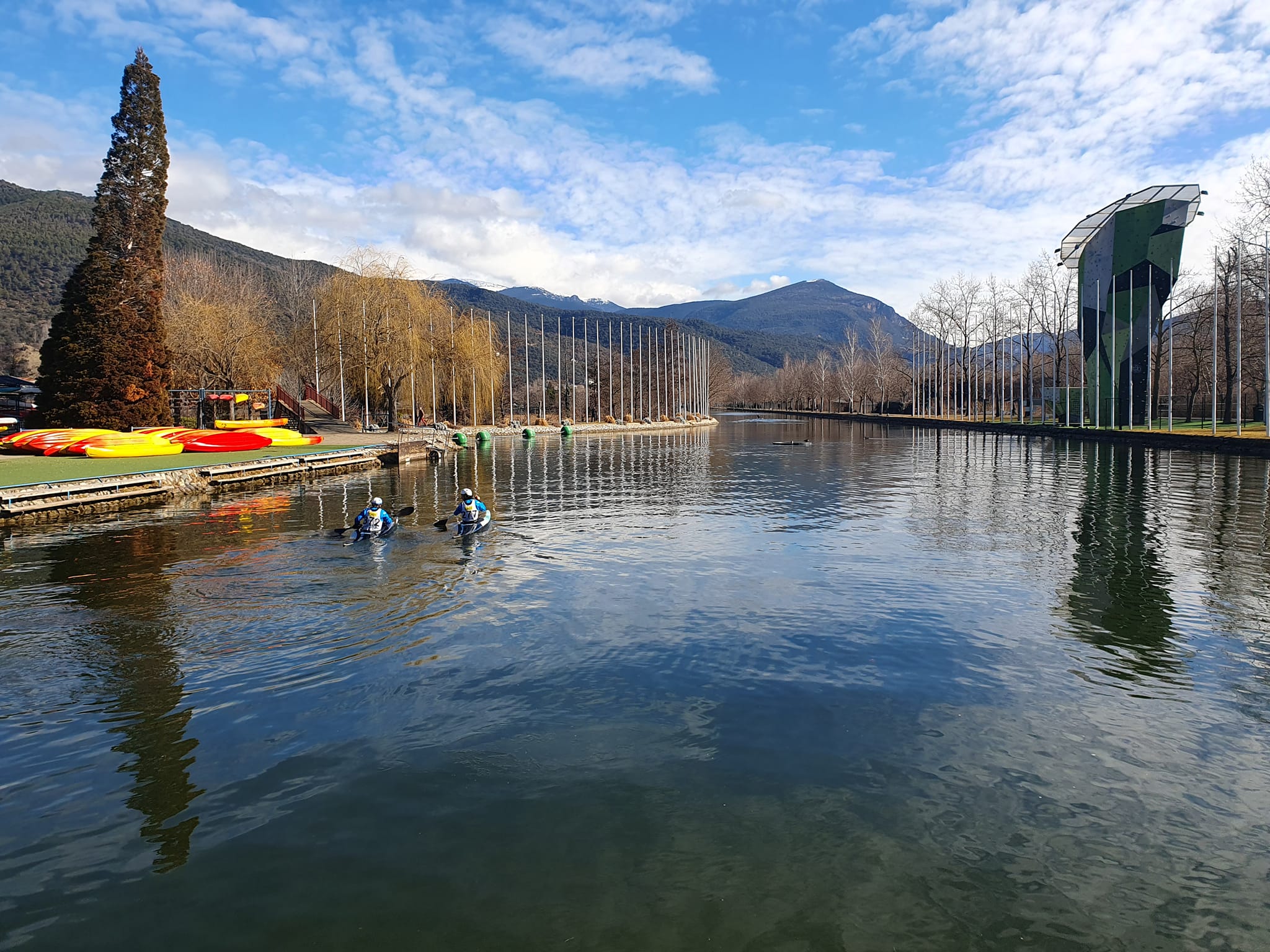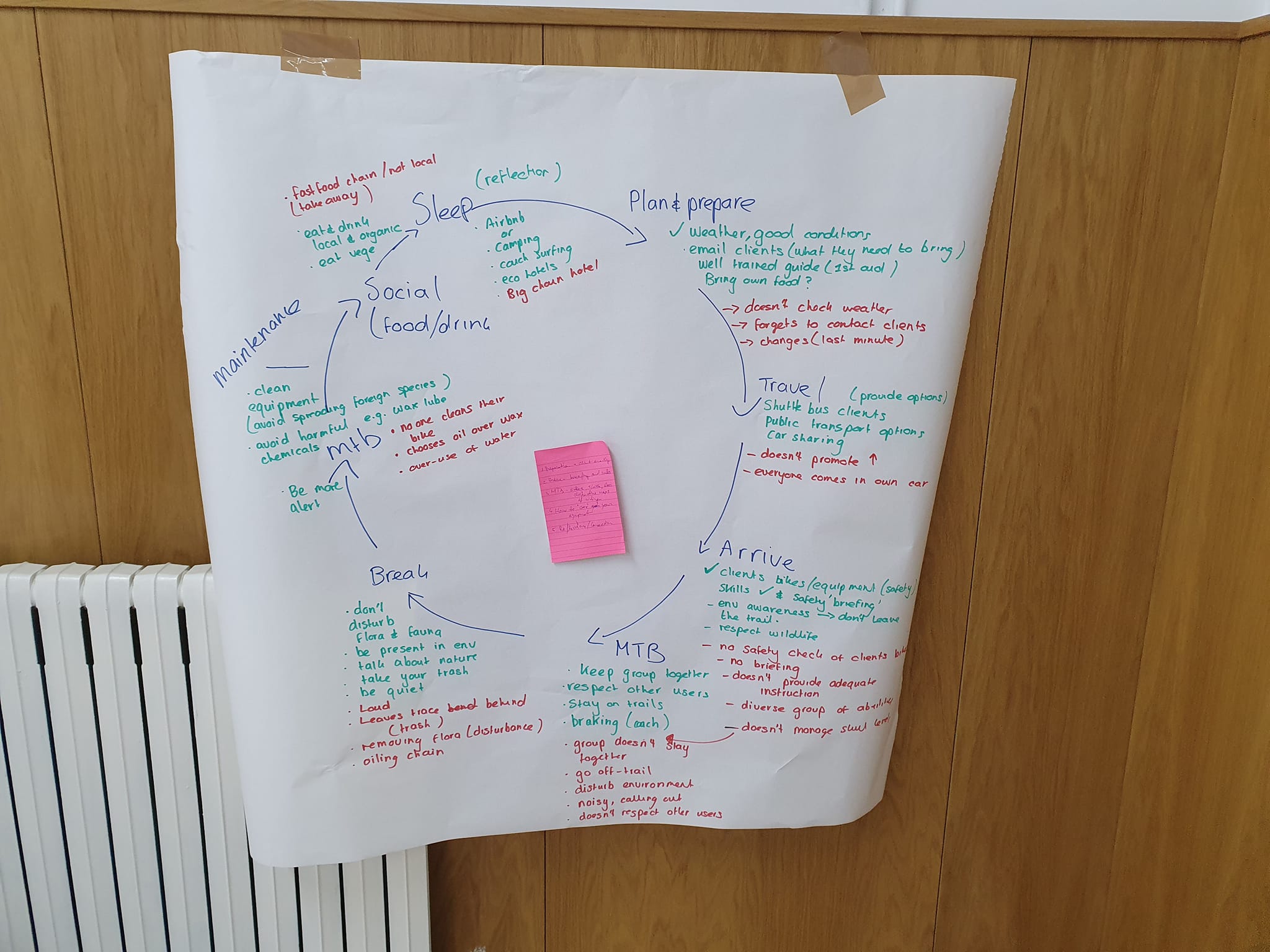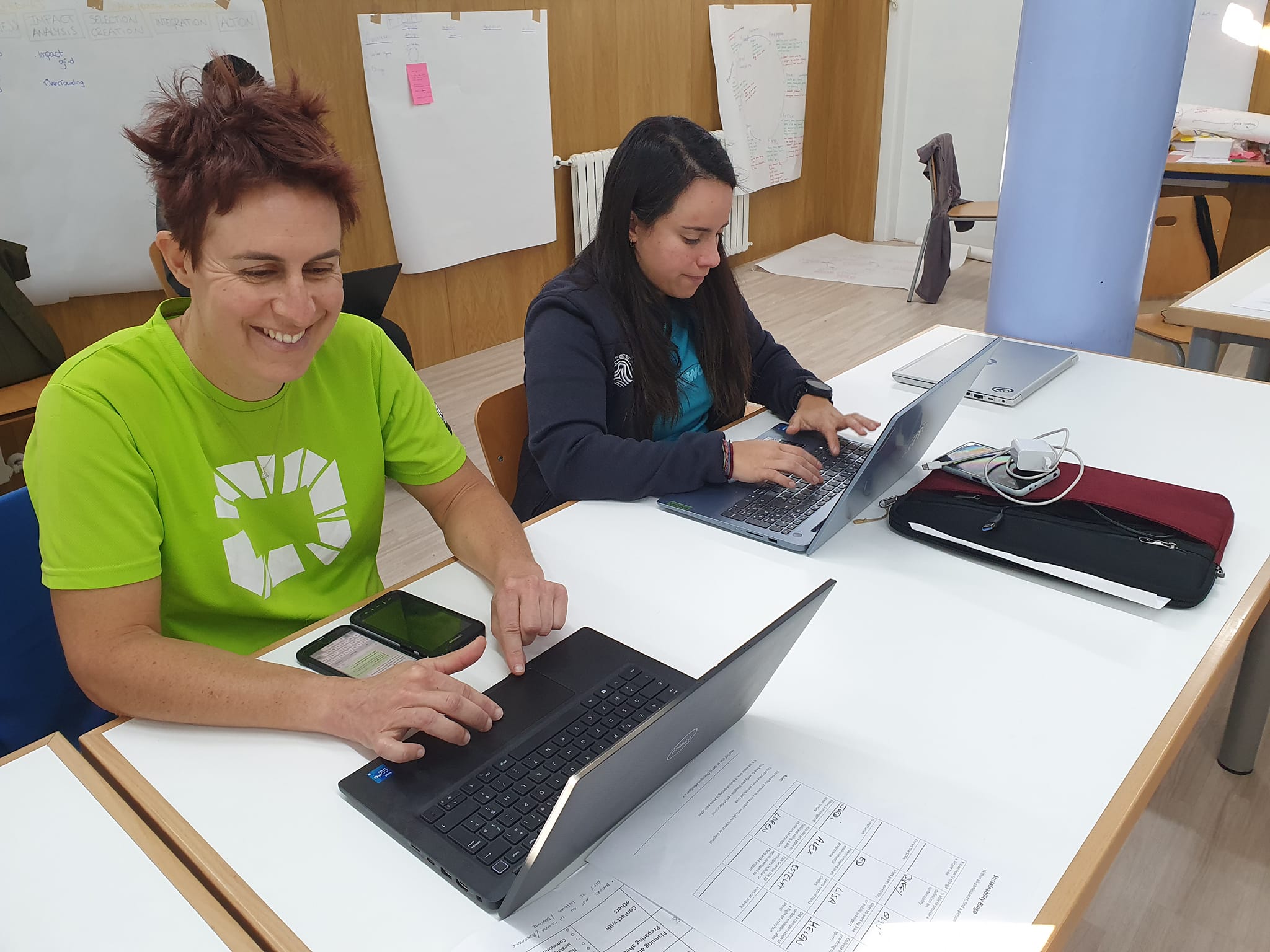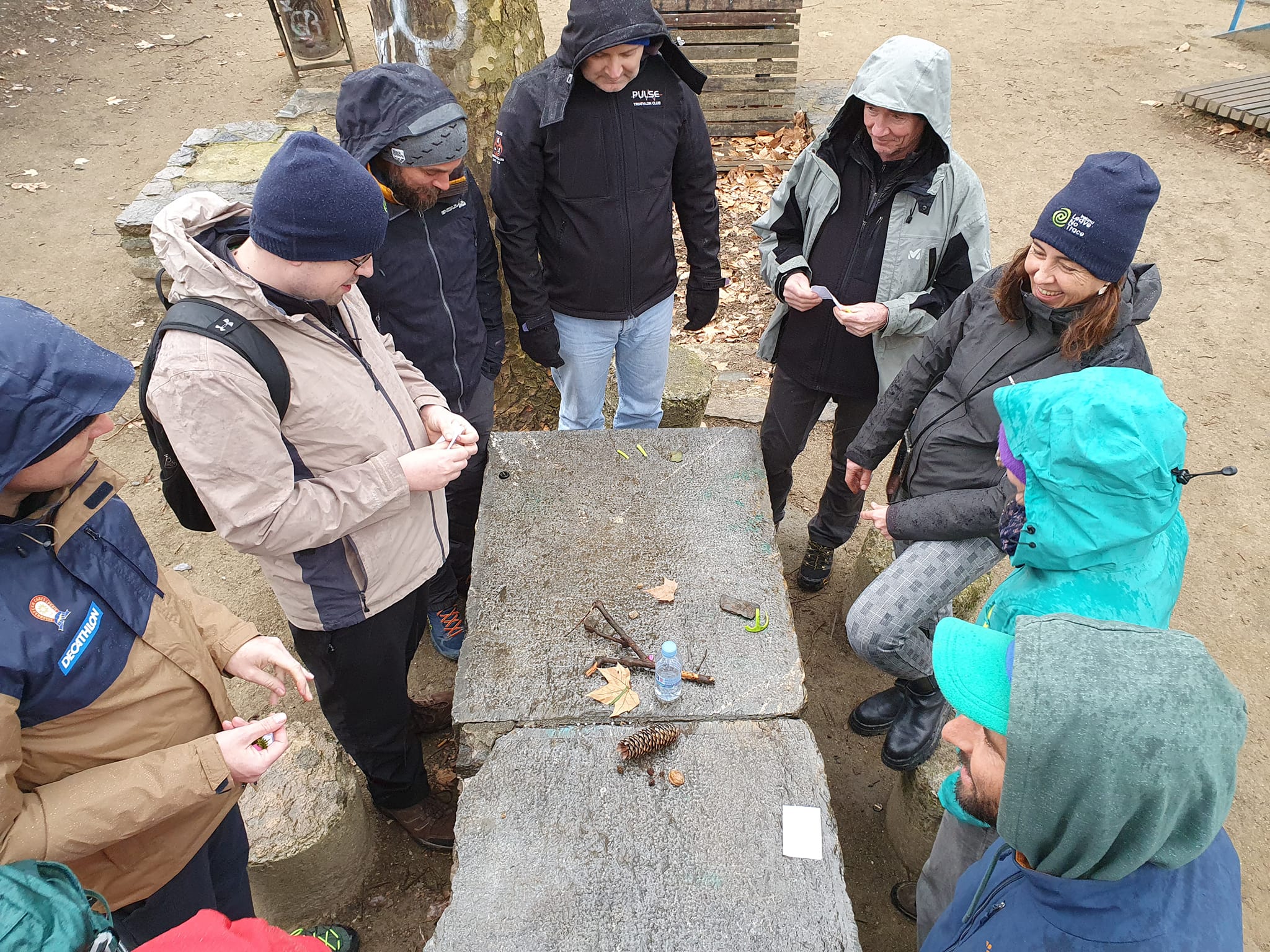We use cookies to improve our services. Read more about how we use cookies and how you can refuse them.
Training providers from across Europe test and evaluate draft toolkit
Last week 13 selected training providers met in La Seu d’Urgell for an intensive two-day train-the-trainer program with the leaders from each project partner of the SEE project. The 13 training providers from 8 different EU countries, represented outdoor sports like hiking, climbing, mountaineering, surfing, swimming, sailing, canoeing, mountain biking, caving, and orienteering.

During the two days, the training providers were informed about the process and development of the toolkit, which included the 5-setep process model. From disruption and raising awareness, impact analysis of various outdoor sports and selecting the right pedagogical activities, to building integrative course concepts and putting them in action. A major component of the train-the-trainer event was the introduction to the various tool kit activities which are to be included in the educational toolkit and given the opportunity to select which activities suit their sport. Each training provider was given the opportunity to select, trial and evaluate the different activities which were organised under themes such as.
- Global topics – (sustainability, carbon emissions, awareness, values, and responsibility
- Ethics, principles, and regulations
- Equipment and consumption
- Destination development, social media, and communication
- Mobility and travel
- Social conflicts and (community) engagement
- Place attachment, responsibility, and care
- MTB specific activities
- Climbing specific activities
- Flora
- Impact analysis

The OS educators will have the next 3 months to integrate and test the activities in their own course/program offerings. After testing the toolbox activities, the OS reps will be asked to fill out an evaluation form, as well as the participants who are being given the training. The evaluation questionaries have been divided into three parts, one for the educator, the multiplier (trainer), and the end consumer (client). The results from the evaluation questionnaire will be important when assessing the relevance and impact of each of the activities in the toolkit. This will be essential in making the final selection of activities for the toolkit. OS educators will have until June to integrate, test and evaluate the toolkit activities. The results from the evaluation will be made into a public report, to be shared in September.

After the evaluation of both the pilot projects and content of the draft SEE project toolkit, the final version will be prepared for further dissemination and as a free public resource. The final SEE project dissemination conference will take place in Munich in October of this year. Final dates yet to be announced.
 English
English Português
Português

